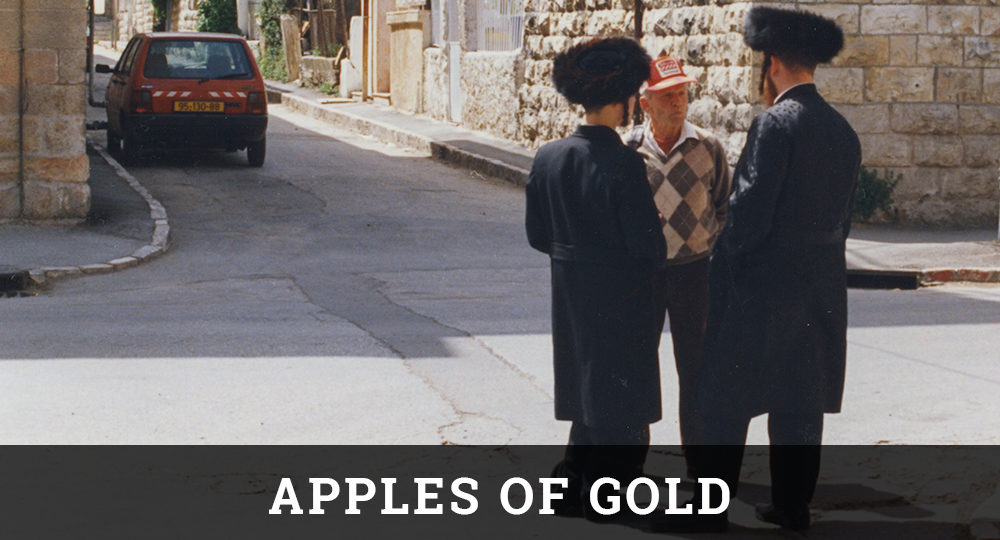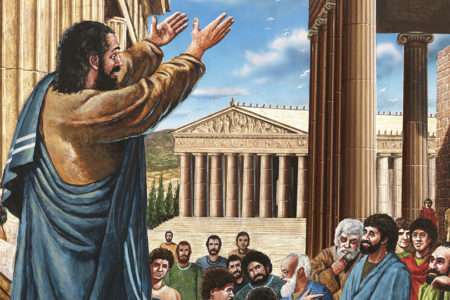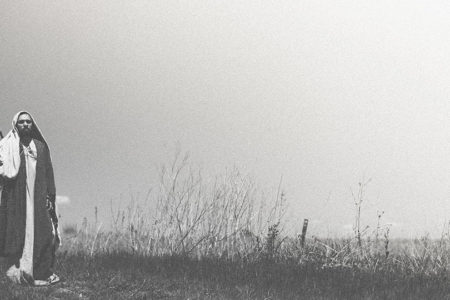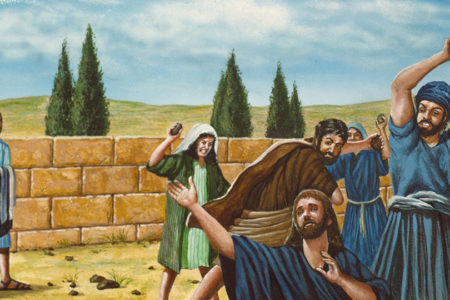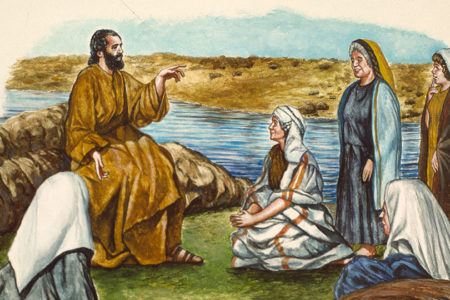Zvi Aug/Sep 1992
The Orthodox have many sayings, and by using them they can turn black into white and white into black. Of course, all of this is done in a nice way so that no one is offended. I have contact with many Orthodox Jews in my neighborhood, especially older people for whom I make home repairs, and they usually invite me to their Semahot (family celebrations, such as bar mitzvahs, weddings, and other religious observances). Although they know what I believe, and in spite of our many heated discussions about religion, they never forget me during their times of rejoicing.
And so it was that a father recently invited me to his son’s bar mitzvah. And what was the first thing he said when he saw me? “Good for the righteous, good for his neighbor; but woe to the righteous, woe to his neighbor!” As you know, a bar mitzvah occurs when a Jewish boy becomes 13 years of age, at which time he assumes all of the religious obligations necessary to keep the Law. From that time on, this boy is responsible for himself before the Lord. I attend bar mitzvahs and other religious festivals because they provide good opportunities to witness about the Lord. Of course, it is not easy to speak about Him because people do not want to hear what I have to say, but He gives me the courage and opens the doors.
Shortly after the bar mitzvah ceremony ended, an old man approached me. He knows me very well because I have made many repairs for him, and we have spoken about my faith in Christ right in his own home. He greeted me and then asked, “How can a cat come over the sea and not be wet?” I immediately understood his meaning and replied, “It is very possible if God wills it. You can read of such an incident in the Scriptures. That is what the Lord did for the people of Israel when they crossed the Red Sea and came out dry. So it was with me. I came across a sea—literally and figuratively—and came out dry! This was the will of God so that I might meet you and tell you about my faith in Christ. If you like, we can continue the conversation about Him that we began in your home.” “That would be good,” he said. “Let’s take a large table, and I will gather some of my friends who will be happy to take part in our conversation.”
He went away for a few minutes, and while he was gone I prayed that the Lord would be with me, as He is at all times, and be my guide as I spoke to these men. I received great courage from the Lord through that prayer, and it was good that I did because the man soon returned with several friends and what he perceived to be great power, but He did not have the power of the Holy Spirit—and I did!
The first thing he asked was, “Do you have a Bible with you?” “Yes,” I replied, “and I am ready to discuss it with you, but I want you to know that I did not come to this bar mitzvah to compete with you, to see who knows more about the Bible. You see, it is not enough to know about the Bible the important thing is to believe it. You have very little knowledge of the Bible itself because you constantly study your books of commentary, and that is sad. In many cultures people are not taught about faith in God and are not permitted to worship Him. That is not the case here in Israel, but you have not taken advantage of your freedom. You have a right to know who your Savior is.” One of the men said, “I suppose you mean your Jesus.” “He is not my Savior only,” I told him. “Jesus came from Heaven to give Himself for the whole world. So it is written in the Bible.” These men then became very agitated and started to attack me full speed. But I was happy that the true subject of our discussion—Jesus Christ, our Savior—was out in the open and that I could freely speak about my faith in Him.
Just then another old gentleman came over to our group and asked what we were discussing, and I told him that I believe in Jesus as my Savior and the Jewish Messiah. He said, “I am sorry that we—the Chosen People of Israel, who are to be examples to the people of the world and the generations to come—are running away from that truth, which is taught in the Law of Moses.” He then told us that he was 84 years old, and although he was lacking in physical power, he was very mighty in the power of the Lord. The other men, who had been so sure of themselves, became as weak as flies. This man spoke at great length about his faith in the Lord, and he was a great inspiration to me. I had never met him before, and when he finished speaking I stretched out my hand to him and said “Hazack-Baruh!” (Be strong and blessed), the synagogue greeting for the worshiper called upon to read the Law.
Meeting this dear man was just another reminder that the Lord is in every place. He told me, “I heard your conversation with those evil-hearted ones, and I reached the courage to speak up about my faith in the Lord. I never did that before, and I don’t know who gave me such great strength.” “I know,” I told him. “Your strength and courage came through the power of the Lord Himself.” I then asked his name, but he replied, “It is enough that God knows who I am.” I agreed, saying, “God knows every one of us.” I was glad to see that the other men in the group were smiling also.
I pray that the Lord will continue to strengthen this dear saint, and many others like him here in Israel, to speak out for Him. Then the prophecy will be fulfilled, “for out of Zion shall go forth the law, and the word of the Lᴏʀᴅ from Jerusalem” (Isa. 2:3).
